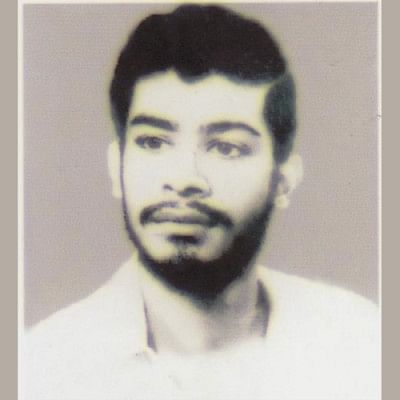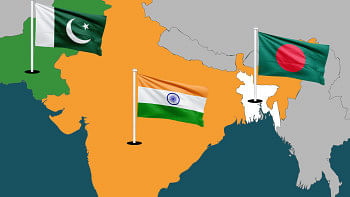Kazi Salauddin: A warrior and a martyr

So many of our memories of our nation's birth is tied to the people we have lost. Beyond our nation's collective joy and grief, every part of the country has a story. And even beyond that, every family has a story of a brave member who fought in the Liberation War and was lost to it. My family has such a story, a great son whose life and passing brings us grief, reverence and inspiration. His name was Kazi Salauddin, freedom fighter, leader, brother, student and martyr.
When the Liberation War began, Kazi Salauddin, my mother's oldest brother, was a second year student of ISC (Intermediate in Science). Overnight, he went from a college student to a revered warrior whose accomplishments were whispered and heralded throughout Faridpur district. He organised a group of brave hearts from different walks of life and established the "Salauddin Bahini" (Salauddin Force). Under the leadership of Kazi Salauddin, they fought skirmishes and ambush battles to cut off supplies and weaken Pakistani strongholds across the district. From the early days of the war, Kazi Salauddin was instrumental in such battles as Chaader Haat battle, Bahirdia Operation, Barkhada Operation, Gyandia Operation, Howly Cutil Bridge (Goalando) Operation, the Faridpur town water tank grenade attack, Nogorkhanda Thana weapon sting operation, the Padma river (Goalando) Ferry attack, operation in Momin Khar Hat, Goalertila and so on. Most notably, he was the commander in one of Faridpur's three major engagements, the Karimpur (Dhopadanga Chadpur) battle.
Around noon on December 9, 1971, Kazi Salauddin received intelligence that a Pakistani unit was entering the Karimpur area along the Faridpur-Jessore road, with a Pakistani captain at the helm. He immediately called the Salauddin Bahini to action. Along with his team, among them martyr Noufel (Salauddin's Second in Command), Kazi Farid (Salauddin's younger brother), Abdur Rahman and Khalilur Rahman, he hid along the roads and set up an ambush on the invading Pakistani unit. Kazi Salauddin was well known in the area, and so was his light machine gun (LMG). Many Pakistani soldiers fell that day, as many as 49. But word reached the Pakistani headquarters in Jessore, and within half an hour, the 36-member Salahuddin Bahini was surrounded by an armoured convoy.
In the ensuing battle, six freedom fighters—Noufel, Wahab, Mujibur, Delwar, Adel and Sohrab—were martyred. The odds were now squarely in the favour of the Pakistanis; as the Bahini took cover, Kazi Salahuddin decided there was only one way to save the remaining members of his unit. He jumped up and firing his LMG, pressed forward, giving his comrades an opportunity to disperse. As his ammunition was exhausted, he began to inch towards the greenery. If not for Kazi Salauhddin's actions, every freedom fighter of Salauddin Bahini would have been martyred that day.
As Kazi Salauhddin pressed forward firing his weapon, many Pakistani soldiers fell at his attack, but he sustained a bullet wound in his back and another bullet hit his LMG magazine. Bleeding and now without any weapons, he ran towards a house in the distance. The inhabitants of the house heard frantic knocking and yelling around the afternoon, answering the door to a wounded freedom fighter. They immediately offered assistance. However, it was to no avail. The Pakistani army followed Kazi Salahuddin's trail to the house. In quick succession, they killed the family inside the home and with the freedom fighter inside, lit the house ablaze.
Seven days later, on December 16, Bangladesh won the war and accepted the surrender of the Pakistani forces. As the new country rejoiced, the surviving Salauddin Bahini grieved the loss of their leader. On December 17, Kazi Salauddin's remains were recovered from the burnt husk of the house. He was buried in Alipur graveyard, Faridpur.
Today, Shaheed Salauddin is admired and remembered in the community he fought for. On the road to my grandfather's house in Faridpur, and town dwellers routinely refer to our house as "Shaheed Salauddin's house". A school and a road have been built in his name in the town. The Faridpur District Administration recognised December 9 as Karimpur Battle Day and the people of the district commemorate it in reverence. To our family, it is an honour to have our pain and pride so ingrained into the town around us. It is a credit to my uncle's memory.
Nubaira Forkan is currently pursuing a Doctor of Pharmacy from the University of Toronto, Canada. She is the niece of Martyr Kazi Salauddin.

 For all latest news, follow The Daily Star's Google News channel.
For all latest news, follow The Daily Star's Google News channel. 



Comments